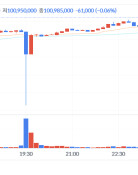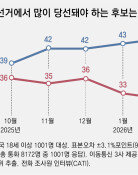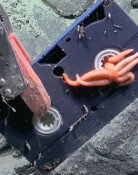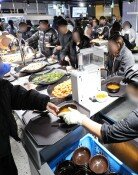One Year Since Designation of Free Economic Zones
One Year Since Designation of Free Economic Zones
Posted August. 02, 2004 22:13,
The Incheon, Busan-Jinhae, and Gwangyang Bay Free Economic Zones, which were expected to serve as drivers to raise Korea to a position as the Economic Center of Far East, have still not found their proper places.
It has been one year since these free economic zones were designated and their authorities were established. However, they are still at their toddling steps. It is not exaggerated to say they have done nothing more than drawing lines on a map.
It is the reality that a foreign enterprise, even when it wants to move in, can not, because there is no land to accommodate its factory.
Attract Foreign Businesses to Bare Ground?
Not only to mention that there is no land reserved for factories, but also there is inadequacy of relevant regulations as well as unsatisfactory infrastructure. Records of attracting foreign businesses or investments have been not up to our expectations.
Incheon had its infrastructure already well established before it was designated as one of the free economic zones, and due to this, it has a good number of foreign businesses from the U.S., the U.K, and other countries. However, all of them came in before the authority started to work. There is no foreign business contract done officially since the authority started. The Busan-Jinhae Free Economic Zone Authority does not even have one agreed note signed, while the Gwangyang Bay Free Economic Zone Authority is showing poor progress in its record of attracting foreign investments.
Only by August next year, the Busan-Jinhae area will have some land reserved for factory buildings for the first time. The new bay in the Busan-Jinhae area, which will serve for material circulation, will equip itself with an area to accommodate six ships only at the end of 2006.
The Gwangyang Bay Free Economic Zone has reclaimed so far only 540,000 pyong out of 1.23 million pyong in the Yulcheon 1 Local Industrial District, which has been developed by the provincial government of South Cholla.
The Incheon Zone also needs to reclaim more land from the sea since it has only 200,000 pyong currently available. However, it is having difficulty reclaiming the fifth and the seventh industrial areas because the areas are subject to the review of their environmental influences. Besides, environmental organizations in that area are against the development plans.
Authority Chief Lee Hwan-gyoon said, The biggest difficulty in attracting foreign investments is providing lands. Foreign businesses are turning their feet to other rival countries.
Hurdles Everywhere
The labor-management dispute is the first hurdle to be mentioned. An official in the Busan-Jinhae Free Economic Zone Authority said, All Japanese entrepreneurs are unanimously worried about our labor disputes.
Hong Chang-pyo, an Economics professor at Bukyong University said, Conditions such as productivity improvement agreements, employment security, and participation in management can be considered to be exchanged between labor and management to resolve the disputes and activating local mediation committee may help the situation.
In addition, the government has been considering allowing Koreans to attend foreign schools and to use medical facilities in the local areas. However, this has shown little progress due to resistance from local interest groups.
The status of the free economic zone authorities and their manpower are also not well-defined.
In the case of the Busan-Jinhae Zone, 146 employees excluding the chief are all government officials temporarily sent from Busan and South Kyongsang Province73 people from each area with a two-year term. It is hard to expect any professionalism from them in such a situation.
Chang Soo-man, chief of the Busan-Jinhae Authority, said, It is necessary to change the current system to a special economic district authority controlled directly by the president or something similar, in order to have appropriate level of discretion to development plans and to secure national budgets.
On the other hand, the Incheon Authority Chief Lee said, Transferring this task to the central government is against the decentralization of power to local governments. It is important that the central government and local governments share responsibilities that are allocated in an efficient manner.
It has been inefficient for the free economic zone authorities to take care of civil affairs including local waste disposals, and this has been also a major source of inconvenience for locals.
What about Support from the Government?
The voice heard from the fields says that there is very insufficient support from the government to build proper infrastructure in the free economic zones.
The government plans to provide 100 billion won in 2005 to the Busan-Jinhae Free Economic Zone. Ninety billion won, however, is for the Myongji Bridge construction, and the remaining 10 billion won is the cost to design the roads.
The expense that has to be shared by the South Kyongsang Provincial government until 2020 is at the same ratio as the government120 billion won per yearbut where the money can be derived is unknown.
In order to provide some of 6,700 billion won that is needed for economic zone development, Incheon City plans to issue bonds.
Regarding this, the government has a plan to complete connecting local roads by 2008 through providing major support in essential infrastructures. Issues such as management of district authorities and independency of their chiefs will also be reflected in the revision of the relevant regulations next month.
In addition, transferring civil affairs to local self-governing bodies and increasing the dispatched officials term to five years from current two years are under consideration.
An official at the Ministry of Finance and Economy said, The three authorities have been trying their best to attract foreign investment since they opened their offices by holding joint conferences for foreign investors.







